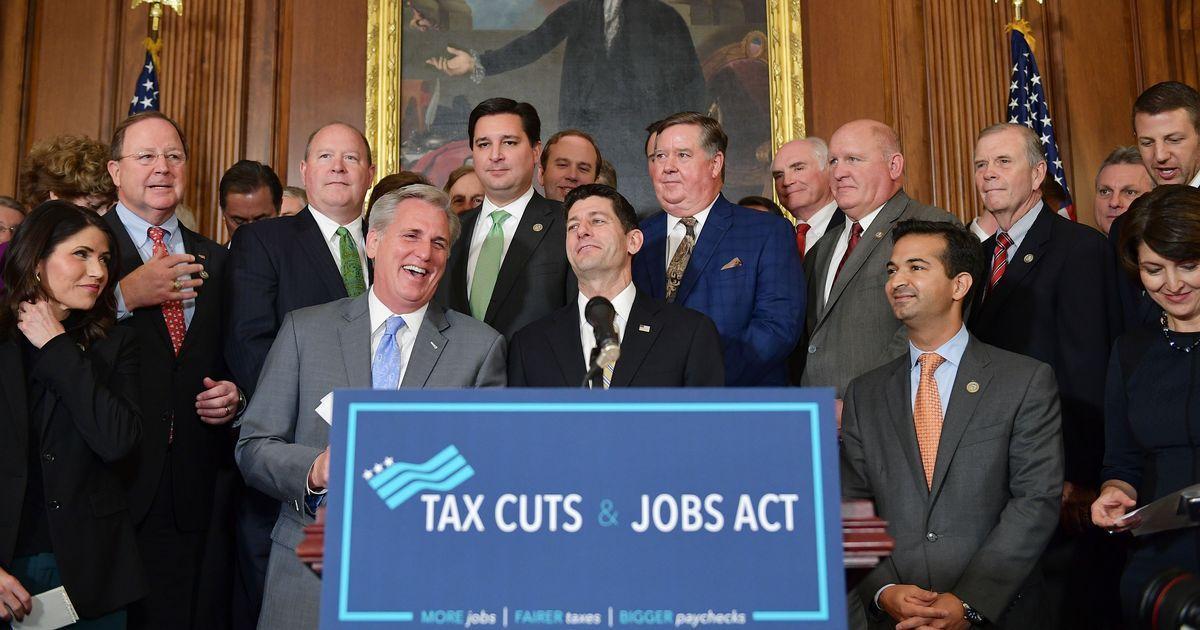
Congressional Republicans took important steps on Nov. 16 toward the biggest U.S. tax-code overhaul since the 1980s, with the House of Representatives approving a broad package of tax cuts, and a Senate panel advancing its own version of the legislation sought by senior lawmakers and President Donald Trump.
The House vote shifted the tax debate to the Senate, where a tax-writing panel finished debating and approved a bill late Thursday evening. That measure has already encountered resistance from some within the Republicans ranks. Full Senate action is expected after next week’s Thanksgiving holiday.
Four Republican senators - enough to derail the legislation - have been talking privately about opposing the bill because it would balloon the federal deficit, according to a Time magazine report.
Trump, who is still seeking his first major legislative win since taking office in January, went to the U.S. Capitol just before the House vote to urge Republicans to pass the tax bill, which Democrats call a giveaway to the wealthy and businesses.
“A simple, fair and competitive tax code will be rocket fuel for our economy, and it’s within our reach. Now is the time to deliver,” White House spokeswoman Sarah Sanders said after the largely party-line House vote of 227-205.
Congress has not thoroughly overhauled the sprawling U.S. tax code since Republican Ronald Reagan was president. The House measure is not as comprehensive as Reagan’s 1986 package, but it is more ambitious than anything since then.
The path forward for the tax plan in the Senate, where Republicans have a narrow majority, is fraught with obstacles about concerns over the deficit, healthcare and the distribution of tax benefits. Republicans can lose no more than two Senate votes if Democrats remain united in opposition.
Senate Republican tax-writers earlier this week made the risky decision of tying their plan to a repeal of the requirement for people to get healthcare insurance under former President Barack Obama’s Affordable Care Act. That exposed the tax initiative to the same political forces that wrecked Republicans’ anti-Obamacare push earlier in July.
The House bill, estimated to increase the federal deficit by nearly $1.5 trillion over 10 years, would consolidate individual and family tax brackets to four from seven and reduce the corporate tax rate to 20 percent from 35 percent.
It also would scale back or end some popular tax deductions, including one for state and local income taxes, while preserving a capped deduction for property tax payments.
Fight ‘not over’
Democrats have pointed to analyses showing millions of Americans could end up with a tax hike because of eliminated deductions. Repealing or shrinking some deductions is a way to offset the revenue lost from tax cuts.
“It’s a shameful piece of legislation, and the Republicans should know better,” House Democratic leader Nancy Pelosi told lawmakers before the vote.
Senate Democratic leader Chuck Schumer warned Republicans that by increasing the deficit, the tax bill would imperil other important priorities such as military spending.
Thirteen House Republicans opposed the bill, all but one from New York, New Jersey or California - states with high taxes where residents would feel the pinch from eliminating the deduction for state and local income taxes.
“This fight is not over. I look forward to continuing negotiations to improve this proposal for my constituents,” said Republican Representative Lee Zeldin of New York, who voted against the bill.
Investors have cheered the prospect of a tax overhaul. U.S. stocks rose and the dollar edged higher against a basket of major currencies on Thursday after the House vote.
Brian Battle, director of trading at Performance Trust Capital Partners in Chicago, said stocks’ strong gains on the day were helped by the House vote.
“It’s helping stocks now and the bond market’s turned around,” he said. “The tax plan isn’t a foregone conclusion, but it passed the lowest hurdle in the House. The even higher hurdle is to have something pass in the Senate.”